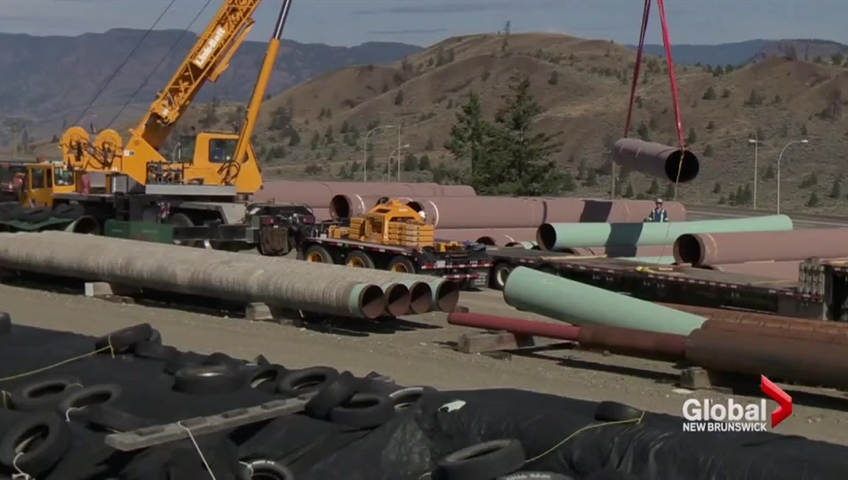Alberta’s energy minister is calling a decision by Canada’s national energy regulator to consider indirect greenhouse gas emissions in evaluating a multi-billion-dollar pipeline an “historic overreach” that could cast a chill over the future of energy development.

Margaret McCuaig-Boyd said it’s inappropriate for the National Energy Board to consider the $15.7-billion Energy East pipeline‘s contribution to upstream and downstream greenhouse gas emissions.
“Deciding the merits of a pipeline on downstream emissions is like judging transmission lines based on how its electricity will be used,” she said in a statement Friday, a day after TransCanada Corp. (TSX:TRP) announced plans to temporarily suspend its application to build the proposed 4,500-kilometre pipeline to carry western crude to Saint John, N.B.
“This is not an appropriate issue to include in the review,” McCuaig-Boyd said.
“We believe it would be a historic overreach and has potential to impact the future of energy development across Canada.”
NEB spokeswoman Sarah Kiley said typically the board considers direct emissions that result from the construction and operation of a pipeline.
READ MORE: Energy East pipeline review topics include upstream, downstream GHG emissions
However, she said the board broadened the scope of its review of the Energy East and Eastern Mainline projects due to “increasing public interest” in greenhouse gas emissions and the federal government’s interest in assessing upstream emissions associated with major pipelines.
McCuaig-Boyd said Alberta’s climate plan, cited by Prime Minister Justin Trudeau in his approval of two new pipelines last fall, should satisfy concerns about upstream emissions.

Get breaking National news
TransCanada said it has filed a letter to the NEB asking for a 30-day suspension for the project so it can study how the NEB’s decision on greenhouse gas emissions will affect “costs, schedules and viability.”

The Calgary-based company is calling the changes to the regulatory process “significant,” and warns that the entire project and related Eastern Mainline pipeline project could be cancelled.
It indicated that it may need to record a writedown of its investment in the project, if it is discontinued.
“Should TransCanada decide not to proceed with the projects after a thorough review of the impact of the NEB’s amendments, the carrying value of its investment in the projects as well as its ability to recover development costs incurred to date would be negatively impacted,” the company said in a statement.
New Brunswick Premier Brian Gallant said he will do whatever necessary to make sure the pipeline proceeds and delivers crude — and jobs — to his province.
READ MORE: N.B. premier urges TransCanada to proceed with Energy East pipeline
In a statement late Thursday, Gallant said he spoke with TransCanada CEO Russ Girling and was reassured that the company is still considering going ahead with the NEB process.
But a dour-sounding Gallant said the possible cancellation of the project would be a big blow to a province that hoped to see the creation of thousands of jobs linked to the pipeline.
“There’s no sugar coating it, TransCanada suspending its application in order to re-evaluate the viability of the Energy East pipeline project is not good news for those who want to see that pipeline built,” he stated.
“We will do everything we can to have TransCanada continue the process, but there’s no doubt that it is possible they won’t.”
It’s another blow to the massive project after a review was derailed last year when members of the regulatory panel overseeing the NEB hearings resigned amid questions about a potential conflict of interest.
In January, the NEB invalidated nearly two years of decisions made by the previous panel and a new panel was appointed.
The Energy East review is taking place at the same time that the government considers a sweeping overhaul of the NEB following a report in May that said the system is broken and the NEB should be split into two agencies.
TransCanada had pitched Energy East as a “Canadian solution to a Canadian challenge.”
It said the 1.1 million barrels of crude that would be delivered across the country each day would displace hundreds of thousands of barrels of foreign oil currently imported into Eastern Canada daily.





Comments